Gustav Mahler's romantic music is often heard in modern movies (such as "Death in Venice"). His lush and often world-weary music included nine large-scale symphonies (including the "Resurrection") and cycles of orchestral songs including "The Song of the Earth" and "Songs on the Death of Children". Mahler's music is regarded as the peak of the post-Romantic period of classical music.

Mahler: The Genius Who Composed the Resurrection Symphony
Gustav Mahler was an outstanding composer and conductor of the post-Romantic era. His lush symphonies included folk music and pastoral elements.
Mahler's Life
Gustav Mahler was born into a large Jewish family (he was one of 14 children) in Kaliste, Bohemia (modern-day Czech Republic) in 1860.
He showed early musical talent (his first public performance was when he was ten) and studied at the Vienna Conservatoire (conservatorium of music). While there he attended occasional lectures by the composer, Anton Bruckner. He was greatly influenced by the music of Richard Wagner.
In 1878 he enrolled in Vienna University. He came under the influence of such continental philosophers as Schopenhauer, Nietzsche, Lotse and Fechner.
Conducting Career
Mahler now commenced his career as an orchestral conductor. He was conductor of (in succession) the Budapest Opera, the Hamburg Opera, the Vienna Court Opera, the Metropolitan Opera (New York) and the New York Philharmonic Society.
As a conductor he showed the influences particularly of Beethoven, Schubert, Wagner, Bruckner and Bach.
Mahler as a Composer
Many critics see Mahler's career as a composer as falling into thee sections.
In the first part of his composing career (1880-1901), he composed four symphonies, the Lieder eines fahrenden Gesellen (Song of a Wayfarer) song cycle, and other song cycles, which include songs from his Des Knaben Wunderhorn (Youth's Wonder Horn) cycle.
In the second part (1901-07), he composed three instrumental symphonies (the 5th, 6th and 7th Symphonies), his Rückert songs (settings of poems by Friedrich Ruckert), his Kindertotenlieder (Songs on the Death of Children), more Wunderhorn arrangements, and finally his choral symphony (8th Symphony).
In the third and final part of his composing career (1907-11), Mahler composed Das Lied von der Erde (The Song of the Earth), his 9th Symphony and his unfinished 10th Symphony. These final works show the composer's quiet resignation as he approached his death in 1911.
Gustav Mahler's 5th Symphony in Visconti's 1971 film Death in Venice
This film was based on Thomas Mann's novella of the same name
Mahler's Life (continued)
Mahler's Changing Fortunes
During his lifetime Mahler's symphonies received wide interest, although he suffered anti-semiticism from various quarters. His songs generally received praise. The premiere of his Eighth Symphony in 1910 was a triumph with applause lasting half an hour.
After his death, Mahler's works suffered a decline in popularity and were banned under the Nazi regime. However, since 1960 audiences have been more receptive to romanticism in music and to Mahler.
Mahler has influenced a number of major composers including Schoenberg, Berg, Webern, Shostakovich and Britten.
Mahler - Symphony No. 2 ("Resurrection")
Works of Gustav Mahler
The major musical works by Mahler include:
Symphonies
No. 1 (the Titan) (1888)
No. 2 (the Resurrection) (1894)
No. 8 (the Symphony of a Thousand) (1907)
Song Cycles
Lieder eines fahrenden Gesellen (Songs of a Wayfarer) (1883-85)
Des Knaben Wunderhorn (The Youth's Magic Horn) (1892-98)
Kindertotenlieder (Songs on the Death of Children) (1901-03)
Das Lied von der Erde (The Song of the Earth) (1908-09)
Who Is Gustav Mahler? (Young People's Concert)
With Leonard Bernstein and the New York Philharmonic Orchestra
Mahler's Legacy
In general Mahler's musical works may be characterized as follows:
- large-scale (his symphonies are by the rule quite long)
- lushly emotional
- often world-weary
- with sudden and large swings in mood
- programmatic (that is, having a narrative form)
- played by large orchestras and choruses
Mahler: Symphony No. 8 (Finale)
Mahler on the Web
International Gustav Mahler Society
Official site of Mahler Society. Composer's life and works. Also membership and contact information, library, news journal, and links.
Gustav Mahler - ipl2
Interesting biography on Mahler.
More Romantic Music
You might also like
Beethoven: The Genius Who Composed The Moonlight SonataLudwig van Beethoven is probably the best known composer of classical music. ...
Music Book Review: Handel's Bestiary by Donna Leon, With CD of...Handel's Bestiary by mystery writer Donna Leon brings together a CD of one an...
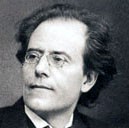




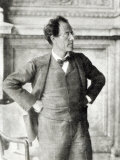
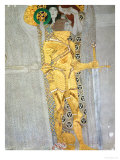
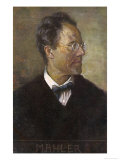




 Ancient Rome: History and Heritageon 02/28/2012
Ancient Rome: History and Heritageon 02/28/2012
 Ancient Greece: History and Heritageon 10/14/2012
Ancient Greece: History and Heritageon 10/14/2012
 Schumann: The Genius Who Composed Scenes From Childhoodon 04/29/2012
Schumann: The Genius Who Composed Scenes From Childhoodon 04/29/2012
 Mendelssohn: The Genius Who Wrote The Hebrides Overtureon 03/04/2012
Mendelssohn: The Genius Who Wrote The Hebrides Overtureon 03/04/2012

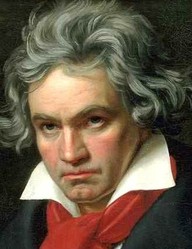

Comments
Thanks, John. I have now added a "Death in Venice" video clip in which you can hear Mahler's music.
I remember watching the movie "Death in Venice" whose soundtrack included a lot of Gustav Mahler music.